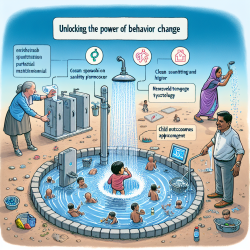Understanding the Impact of Religious Group Participation on Child Health
In the realm of child development and health, understanding the factors that contribute to holistic well-being is crucial. A recent study titled "Participation in Church or Religious Groups and its Association with Health: A National Study of Young Canadians" sheds light on how involvement in religious groups can influence various health outcomes for children. This blog explores the findings of this study and discusses how practitioners can leverage these insights to enhance child health outcomes.
Key Findings from the Study
The study, conducted with a national sample of young Canadians, aimed to explore the relationship between participation in religious groups and holistic health indicators. Health was assessed through risk and protective behaviors, prosocial behaviors, and internal emotional states, all connected to the concept of 'shalom'—a Hebrew term encompassing peace, wholeness, and well-being.
Notably, children involved in religious groups reported:
- Lower participation in risk behaviors such as smoking and alcohol misuse.
- Higher engagement in prosocial behaviors, including helping and sharing.
- Mixed results in terms of internal emotional health, with some indicators like loneliness not significantly improved.
Implications for Practitioners
These findings present an opportunity for practitioners in speech-language pathology and related fields to consider the broader social and spiritual contexts of children's lives. Here are some practical steps that practitioners can take:
- Encourage Community Involvement: Facilitate connections with community or religious groups that promote positive social interactions and prosocial behaviors.
- Focus on Holistic Health: Integrate discussions of emotional well-being and spirituality into therapy sessions, acknowledging their role in overall health.
- Promote Prosocial Activities: Design interventions that encourage children to engage in helping and sharing activities, reinforcing the positive behaviors observed in the study.
Encouraging Further Research
While the study provides valuable insights, it also highlights gaps in understanding the full impact of religious participation on holistic health. Practitioners are encouraged to contribute to further research by:
- Exploring the specific aspects of religious participation that most significantly impact health outcomes.
- Investigating the role of spirituality and emotional well-being in speech-language pathology outcomes.
- Collaborating with interdisciplinary teams to develop comprehensive health models that include spiritual and community factors.
Conclusion
The study on religious group participation offers a nuanced view of how community involvement can influence child health. By integrating these insights into practice, practitioners can support the development of well-rounded, healthy children. For those interested in exploring the original research further, please follow this link: Participation in Church or Religious Groups and its Association with Health: A National Study of Young Canadians.










